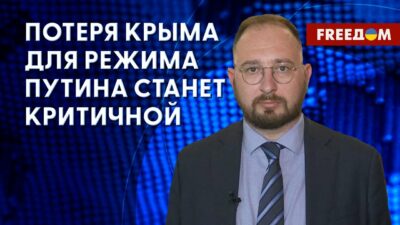MINSK — Belarusian security forces have searched the homes of more than two dozen journalists and rights activists across the country in what the European Union, the Belarusian opposition, and rights watchdogs called a targeted campaign to intimidate independent voices as the country continues to be gripped by unprecedented protests against longtime leader Alyaksandr Lukashenka.
At least 25 residences in Minsk and other towns and cities were targeted by police and security-service officers on February 16.
The offices of the Vyasna (Spring) human rights center in Minsk and the the headquarters of the Association of Belarusian Journalists also reported being searched.
Reports said that more than 30 people were briefly detained, while several others were remanded in police custody.
In a statement, the Belarusian authorities said the searches were tied to an investigation into what they said was the financing of protests by “organizations positioning themselves as human rights defenders.”
The country’s leading opposition figure, Svyatlana Tsikhanouskaya, said the raids represented a “crisis” for the government.
“In its attempt to cling to power, the regime is repressing those who are defending human rights. As long as this continues, all Belarusians are in danger,” she said in a statement on Telegram. “Belarusians know how to solve this crisis.”
EU foreign affairs chief Josep Borrell’s spokesman said the Belarusian authorities escalated their “intimidation and assault” campaign against civil society activists, human rights defenders, and journalists in violation of “freedoms and rule of law.”
“It’s unacceptable. Only respect [for] human rights [and] free [and] fair elections can guarantee stability [and] sovereignty,” the spokesman, Peter Stano, wrote in a tweet.
Torture Allegations
Tens of thousands of Belarusians have taken the streets, almost weekly, since August when Lukashenka claimed reelection in a vote that Tsikhanouskaya and her supporters called fraudulent.
The demonstrators are demanding that Lukashenka leave and new elections be held, but Belarus’s strongman has been defiant. Security officials have arrested thousands and forced Tsikhanouskaya and other top opposition figures out of the country.
Several protesters have been killed in the violence and some rights organizations say there is credible evidence of torture being used against some of those detained.
But the vice president of the Association of Belarusian Journalists, Barys Haretski, said the latest wave of police searches was “the largest crackdown ever on journalists and rights activists Europe has ever seen.”
“There have been more than 400 detentions of journalists over the last six months, and the authorities aren’t going to stop at that,” said Haretski, whose home was searched on February 16.
“This is an attempt to intimidate journalists and human rights activists who have been telling the world about the unbelievable scale of repressions,” Vyasna deputy head Valyantsin Stefanovich said.
The searches and detentions also drew international condemnation, with the Council of Europe’s human rights commissioner, Dunja Mijatovic, calling them “unacceptable.”
“Freedoms of expression, association & assembly [should] be ensured according to [international] human rights standards,” she tweeted.
In a statement, the Organization for Security and Cooperation in Europe’s Office for Democratic Institutions and Human Rights (OSCE-ODIHR) voiced its “utmost concern” over “what seems to be a concerted effort by the Belarusian authorities to investigate and intimidate” human rights activists in connection with peaceful protests.
Aisha Jung, Amnesty International’s senior campaigner on Belarus, denounced a “centrally-organized and targeted attempt to decimate the country’s independent media and human rights organizations.”
“Having imprisoned or forcibly exiled almost anyone associated with the political opposition in the country, the Belarusian authorities have now set their sights on human rights defenders and journalists,” Jung said in a statement.
Tsikhanouskaya ran for president in August after her husband was jailed while trying to mount a candidacy of his own. She left the country for Lithuania shortly after the election due to security concerns.
Lukashenka has denied any wrongdoing and refuses to negotiate with the opposition on stepping down and holding new elections.
Last weekend, he held a two-day “People’s Assembly” that was billed as a way to discuss political reforms. His opponents dismissed it as a sham performance.
The United States, European Union, Canada, and other countries have refused to recognize Lukashenka’s claim of reelection and have slapped him and other senior officials with sanctions in response to the “falsification” of the vote and postelection crackdown.



